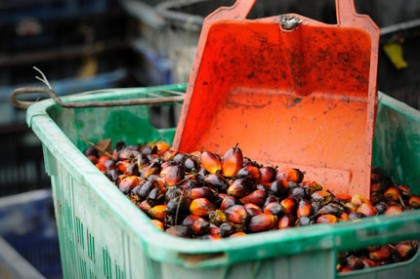
Date: 2025-01-15 Page is: DBtxt003.php txt00013456
Brazil / Land Use / Pa;m Oil Sustainable Management
About Abrapalma and Family Farming of PalmOil
Burgess COMMENTARY
Peter Burgess
About Abrapalma
The Brazilian Association of Palm Oil Producers – Abrapalma was created in 2012 to unite the productive sector and lead the project of making it possible for Brazil to be a model in the sustainable production of palm oil.
The association works so there will be more public policies that allow the field to intervene in a way that is increasingly more coherent in the market, with legal security, access to technology and adequacy to the norms that rule the national agricultural production.
The companies linked to Abrapalma also share principles and ideals related to the appreciation of decent work, respect for the legislation, the adoption of agricultural techniques and sustainable environments, and the investment in research and genetic improvement of the palm oil.
They are agribusinesses of different sizes, located in 23 cities in the state of Pará. Together, they take care of the biggest part of the production, industrialization and commerce of palm oil in Brazil.
The Abrapalma associates generate about 20 thousand direct jobs and interact with approximately a thousand families of small and medium producers who try to ally an economical alternative that generates capital to the traditional subsistence cultures.
Get to know the Abrapalma associates.
Vision, mission and values
Abrapalma has the mission to represent, organize and gather the Brazilian companies that produce palm oil, aiming to develop technical and scientific knowledge, improve public policies and promote the development of the field in practice, but with the proper social and environmental care.
According to these principles, the association represents the segment of the palm in national and international forums, bringing the message of a field that seeks to address the relation between production and sustainability, which implies working and prospering in the perspective of valorization of the environment and the traditional communities and populations that relate to the activity.
Abrapalma’s field of action also includes the cooperation with public organs in the planning and execution of policies aimed at the development of the productive field of the palm. The association wants to improve the regulatory mark through reforms and adjusts to the federal, state and municipal legislations, with the purpose of benefitting the field, the family production and the expansion of the entire productive chain.
In order to do so, Abrapalma seeks resources and knowledge through its associates, as well as public and private institutions and any other entities of the civil society that are capable of encouraging research, the qualified debate and the incentive to projects and purposes that can perfect the production and commerce of the palm oil from a technical and scientific point of view.
In order to perfect the technical and scientific point of view of the production and commerce of the palm oil, Abrapalma seeks resources and knowledge through its associates, as well as public and private institutions, and any other entities of the civil society that can contribute and stimulate research, the qualified debate and the encouragement to purposes and projects.
The cooperation between associates, the transparency in actions and the seeking for equality and impartiality in the representation of the segment are also values that Abrapalma cultivates. This explains the fact that the continuous improvement of acting and the economic valorization of the productive chain are among the main goals of the entity. Moreover, all of this is sustained by the association’s statute, which reflects the thought that predominates in the field.
==============================================================================
Family agriculture
The Brazilian legislation that defines the concept of family agriculturist is supported by the Brazilian constitution and by the 11.326/2006 law. A family agriculturist develops economic activities in rural areas and meets basic requirements, such as not possessing rural property bigger than 4 fiscal modules; this being a definition that changes according to the region in which it is located, since the fiscal module varies from 5 to 100 hectares according to the municipality.

Agricultura familiar
Family agriculture utilizes, above all, family labor in economic activities, and the biggest part of the family income comes from the farming activities that are developed in their rural facilities.
In the year of 2006, IBGE carried out the Brazilian Agricultural Census. It was found that family agriculture has great force and importance for the production of food in the country. According to official data, approximately 85% of agricultural facilities come from family agriculture. There are around 4,26 million of agricultural facilities that fit in the law’s definition.
The main program that encourages family farming is the National Program of Strengthening of the Family Agriculture – Pronaf, which finances projects for the small farmer, with low interest rates.
Through Pronaf, the Ministry of Agrarian Development – MDA enjoys a specific line of credit for palm, with conditions and distinguished interest. This provides incentive and support for the small farmer.
Pronaf Eco Dendê transfers the resources to the family agriculturists through the Bank of Brazil and Bank of the Amazon – Basa, which sign, together with Abrapalma and other partnerts, the Socio-environmental Protocol of Palm.
Family agriculture and palm
In the whole world, the plantation of oil palm involves approximately 5 million families of agriculturists in 44 countries in Central and South America, Africa, Asia and Oceania, generating a reduction of the rural exodus, economical alternatives, new local productive arranges and an increase of income in the countryside.
In the state of Pará, where the biggest part of Brazilian production of palm oil concentrates, 1070 families of agriculturists are incorporated into the productive process, between small and medium producers. These families are distributed in 27.526 hectares.